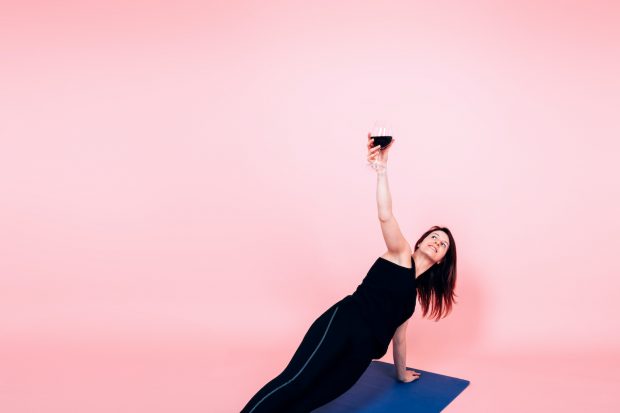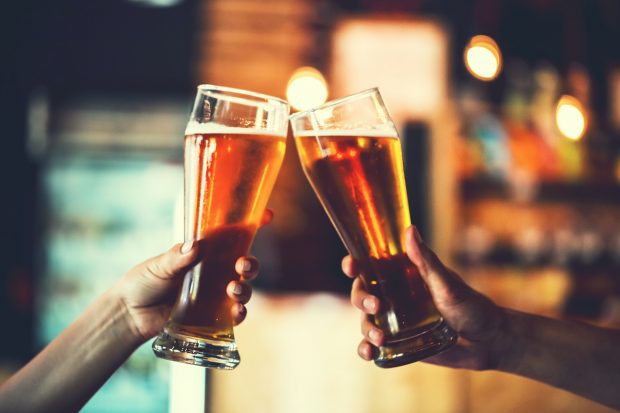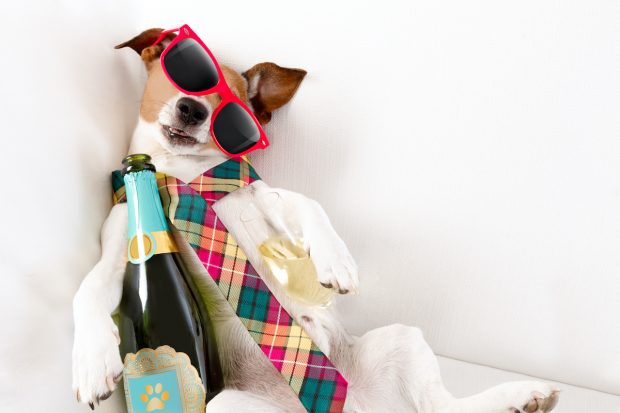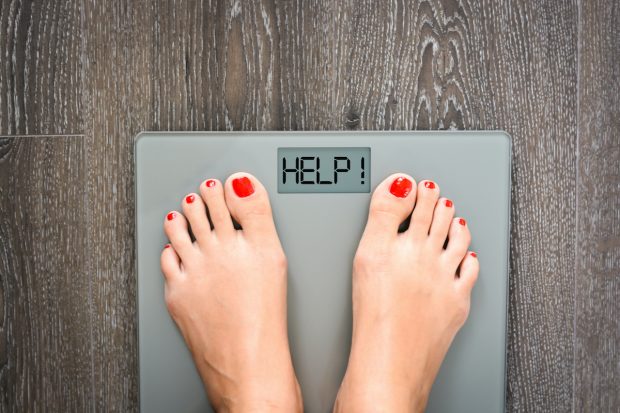So, you think all fitness fanatics steer clear of alcohol, huh? You’re dead wrong! According to science, gym-goers drink more than stay-at-homers. Even fitness studios are catering to the avid worker-outer—post-pilates wine bar anyone? Or, why not during exercise? Trending classes like wine yoga don’t even wait until the end of class before cracking open a bottle (or two).

But does alcohol pair with exercise as well as gin does with tonic? Unfortunately, there’s not tons of scientific research on the topic—probably because scientists are a bit skeptical of getting test subjects drunk and then asking them to complete a 60-minute fitness class. Without being a total buzzkill, here’s how alcohol will affect your workout routine and your health.
Your Body On Booze
Before we get into how alcohol alters your workouts, let’s talk about what it does to your body.

Just an itsy bitsy teeny weenie sip of alcohol stays in your body for up to two hours, with your liver doing most of the work to break it down. And once it enters the bloodstream, it wants a part of every single one of your organs, especially your brain! Depending on how much you drink, your judgment could be impaired, your cognitive functions may slow to a snail’s pace and your mood might become significantly altered. And let’s not forget about reduced motor functioning and diminished reaction time.
The important thing to note here is that you don’t need to drink to the point of fatty liver disease (a condition developed from excessive drinking over time), for all those post-pilates happy hours to add up.
What Happens When You Drink Before a Workout?
First off, it’s against your better judgment. Consuming alcohol compromises your motor skills, delays your reactions, decreases your coordination and impairs your judgment, which could result in injury.

And you definitely won’t be bringing your A-game to the table! Research suggests even small amounts of alcohol prior to training lead to decreased output. This is because your body metabolizes alcohol over carbs and fat, which are your body’s preferred energy sources when exercising. Play it safe—stick to water before a workout.
What Happens When You Drink After a Workout?
So, you just completed a really hard HIIT class. Now, you’re meeting up with all your friends for happy hour. While an evening out with friends is fun, drinking is the worst thing you can do post-workout. See, alcohol messes with your hormones and inflammatory responses, making it difficult for your body to repair from the muscle breakdown that transpires during a workout. By throwing booze into the mix, your body will be too busy metabolizing alcohol to even think about recovering from a hard workout. You might as well kiss those gains goodbye. We suggest grabbing for that post-workout protein shake instead.
Why Is My Mouth So Dry?
Ever wake up the morning after a night out boozing and it feels like your tongue is stuck to the roof of your mouth? You’re most likely dehydrated.

If alcohol alone’s not bad enough, imagine putting yourself through a strenuous workout—a workout that depletes your body of all the important vitamins, minerals and electrolytes it needs—and following it up with a huge pitcher of margaritas. Nothing screams dehydration quite like exercise combined with alcohol.
But dehydration from alcohol isn’t just a post-workout issue—your Saturday morning fitness routine will take a major hit after a night out on the town. In fact, booze-induced dehydration can decrease performance by 10 percent or more.
Empty Calories
I’m guessing none of us want to waste our daily caloric consumption on nutrient-poor foods. While donuts are the poster child of empty calories, alcohol is just as guilty. In fact, alcohol contains absolutely no beneficial nutrients. Not only that, one drink alone can rack up a heavy amount of calories (and sugar). After all, the term “beer gut” got its name for a reason.
And if you’re tempted to get around this little hiccup by drinking lower-calorie beverages—think vodka soda—the effects on performance will be just the same.
Weight Gain

Alcohol packs some serious calories—7 calories per gram. The average drink contains 14 grams of alcohol, which is around 98 calories and that’s before you add in the additional calories from soda, juice or mixers. Over time, these extra calories pack on additional pounds and severely impact your training performance.
Nutrient Deficiencies
An even larger issue is alcohol’s impact on your body’s ability to absorb and utilize nutrients. When you strenuously train, you may suffer from nutritional deficiencies due to the physical demands of exercise. This, coupled with drinking too much, places too much pressure on your liver cells and they can become inefficient at activating Vitamin D, which is important for developing muscle, metabolizing fat and supporting your nervous system.
The Bottom Line
Should you swear off alcohol completely? Absolutely not. That’s unrealistic for most of us. But there are a few changes you can make the next time you head to happy hour. To limit hangovers and their effects on your training, choose drinks with lower alcohol content (sorry to say, it won’t be vodka) and follow up every drink with a large glass of water.
Of course, it’s fun to have an occasional drink after a workout and you should definitely treat yourself—just not all the time. The occasional drink won’t totally derail your fitness goals. Just don’t make it a regular habit.




 (average: 3.67 out of 5)
(average: 3.67 out of 5)









Kommentar schreiben